This article has been medically reviewed by Rachel Fitz-Desorgher a specialist midwife, infant feeding consultant and parenting consultant.
If you've watched your due date come and go or you're just so damn uncomfortable, you might have started exploring ways to bring on labour naturally, one of which includes drinking raspberry leaf tea. This is a herbal remedy that is thought to tone the muscles of your womb to help it work during labour.
What is raspberry leaf tea?
Red raspberry leaf tea is a herbal tea that is made from the leaves of the red raspberry plant. It has been used as a pregnancy tea for at least two centuries. Although often recommended to induce labour, its actual role is to increase blood flow to the uterus and ready the uterine muscle for more organised contractions during labour.
While there are no studies to suggest that this fruity herbal tea can induce labour, by learning how it works with the womb, it's understandable why so many pregnant women are keen to try the tea.
Why do pregnant women drink raspberry leaf tea?
“Raspberry leaf tea is used by many women to help prepare their womb muscles for labour and birth,” says Rachel Fitz-Desorgher, author and former midwife. “The womb muscle contracts regularly day in and day out even when a woman is not pregnant, which is how it keeps toned and fit. As the womb gets ready for the mammoth effort required for labour and birth, the exercise it does picks up, just like a runner preparing for a marathon."
“Raspberry leaf tea is also thought to help the womb muscle tone up. Although there is no evidence, by getting really toned up and ready for action in this way, a woman might be less likely to go past 41 weeks of pregnancy. So although the tea doesn't really start labour, it might help push your body in the right direction by getting the womb fit and strong.”
Benefits of raspberry leaf tea
Although the chance of raspberry leaf tea kickstarting labour is still up for debate, on the whole, there are plenty of other possible health benefits to drinking a cup including:
•Helping to induce labour. Some studies have also indicated that it can also help shorten the length of the second stage of labour.
•Strengthening the uterus as studies have found it can help blood flow to the uterus and aid muscle contractions.
•Possibly prevents tears and interventions during birth. According to some research, drinking raspberry leaf tea in the later stages of pregnancy may reduce the likelihood of interventions in labour, for example, with the use of forceps.
• It is rich in oxidants and nutrients such as calcium, iron, potassium and vitamins A,C and E which protect against chronic disease and inflammation.
• May ease premenstrual symptoms including cramps, vomiting, nausea and diarrhoea.
Sandra Greenbank, a nutritional therapist specialising in fertility, pregnancy and women's health says: “Raspberry leaf has been famous throughout history for preparing mothers for childbirth. It is thought to help shorten labour, as it strengthens the uterine and pelvic muscles while also working as a relaxant at the same time, and therefore helps reduce the pain of contractions during labour."
Does raspberry leaf tea work?
Although no trials regarding red raspberry leaves and drinking red raspberry leaf tea as a pain management therapy during labour have been published, a few studies have looked at how this fruit tea affects labour and birth outcomes.
For example, studies evaluating the length of labour and birth outcomes found that the use of raspberry leaf tea can shorten the second stage of labour and reduce post-term pregnancy.
Although some mamas swear by it, ultimately, there isn't enough evidence either way to provide a comprehensive answer.
Raspberry leaf tea dosage
There are no official guidelines around how much raspberry leaf tea you should drink, but it is advised not to drink it in early pregnancy, or before 36 weeks pregnant. As a general guide, start with 1 cup a day and increase to no more than 3 cups per day by 39 weeks. If you don't like the taste and prefer to take raspberry leaf tablets, follow the guidelines with the tablets, which is normally one tablet per day, increasing to 2 tablets per day at 39 weeks. If you have any questions or concerns it is always best to check with your midwife or doctor.
When to start drinking raspberry leaf tea
It’s important to make sure you wait until the recommended date before you start drinking this tea. “The general advice is to wait until around 36 weeks pregnant to start drinking the tea, or take the capsule alternative. This is because there is a worry about its impact in pregnancy,” says Laura Southern, a nutritional therapist from London Gynaecology.
You should start with one cup a day and build up to three cups a day, to help bring on labour naturally.
Is it safe to drink raspberry leaf tea?
Considering raspberry leaf tea is easy to get hold of, you might be mistaken for thinking that it must be safe to drink. However, some medical herbalists caution that you should be careful taking it early in pregnancy, as it stimulates the uterus and could cause a miscarriage, although there are no studies on this.
You should be careful if you are taking other medicines before drinking raspberry leaf tea because, like all herbal remedies, it can interfere with some other medicines such as those for diabetes and antidepressants and cause side effects.
Always check the leaflet that comes with the tea or tablets if you buy it over the counter or, better still, talk to your midwife beforehand.
Are there any side effects to drinking raspberry tea?
Due to the lack of research on raspberry tea in pregnancy, the possible side effects known are limited, however, it is believed to:
• Affect your bowels: while some users found it to have a laxative effect, others found it actually helped treat diarrhoea.
• Cause you to urinate more: Yep, even more than you usually are!
• Potentially increase the chance of miscarriage: As above, because raspberry leaf tea may have the potential to trigger labour contractions, it is wise to avoid drinking it in early pregnancy.
Who should not drink raspberry leaf tea?
It's not advised to drink raspberry leaf tea if:
• You have high blood pressure
• You are expecting twins or your baby is breech
• You have a family or personal history of breast or ovarian cancer, endometriosis or fibroids
• You've had premature labour previously
• You are breastfeeding
• If you're due to have a c-section
• If you've had any complications or health problems in your pregnancy
In general, it is best to speak to your midwife before considering drinking raspberry leaf tea to ensure that you personally aren't at risk.
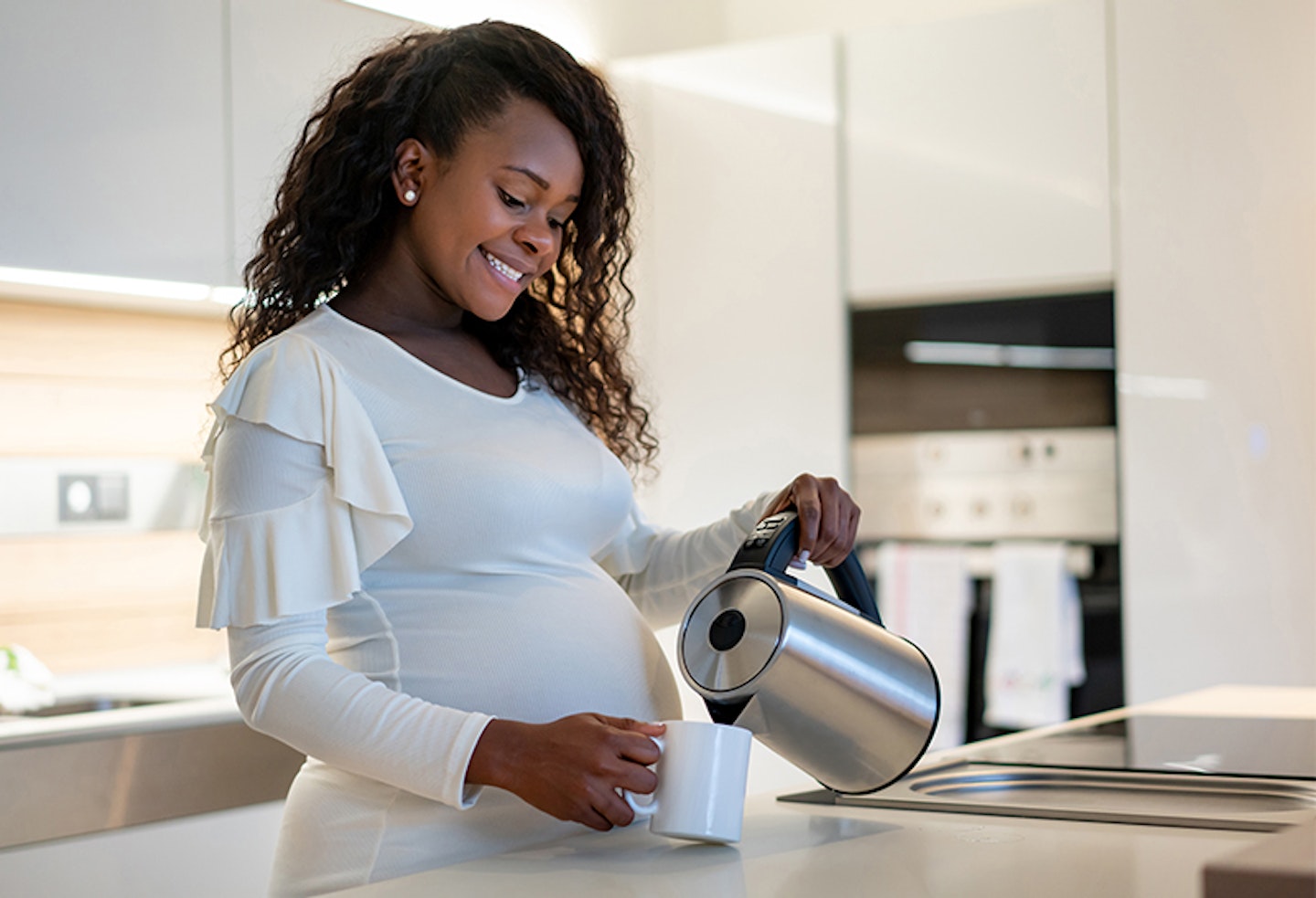
Best raspberry leaf tea at a glance:
• Best pure raspberry leaf tea: Indigo Herbs Raspberry Leaf Tea, £8.45
• Best raspberry leaf tea for flavour: HotTea Mama | The Final Push,£6
• Best loose leaf raspberry leaf tea: Origeens Organic raspberry leaf tea £13.97
• Best organic raspberry leaf tea: Yogi tea raspberry leaf, £4.47
• Best raspberry leaf capsules: Nature's Aid Raspberry leaf tablets£6.99
Where to buy raspberry leaf tea
Once you have confirmed with your midwife that it is safe for you to begin drinking this tea, here are some raspberry leaf teas and capsules to try.
Best pure raspberry leaf tea
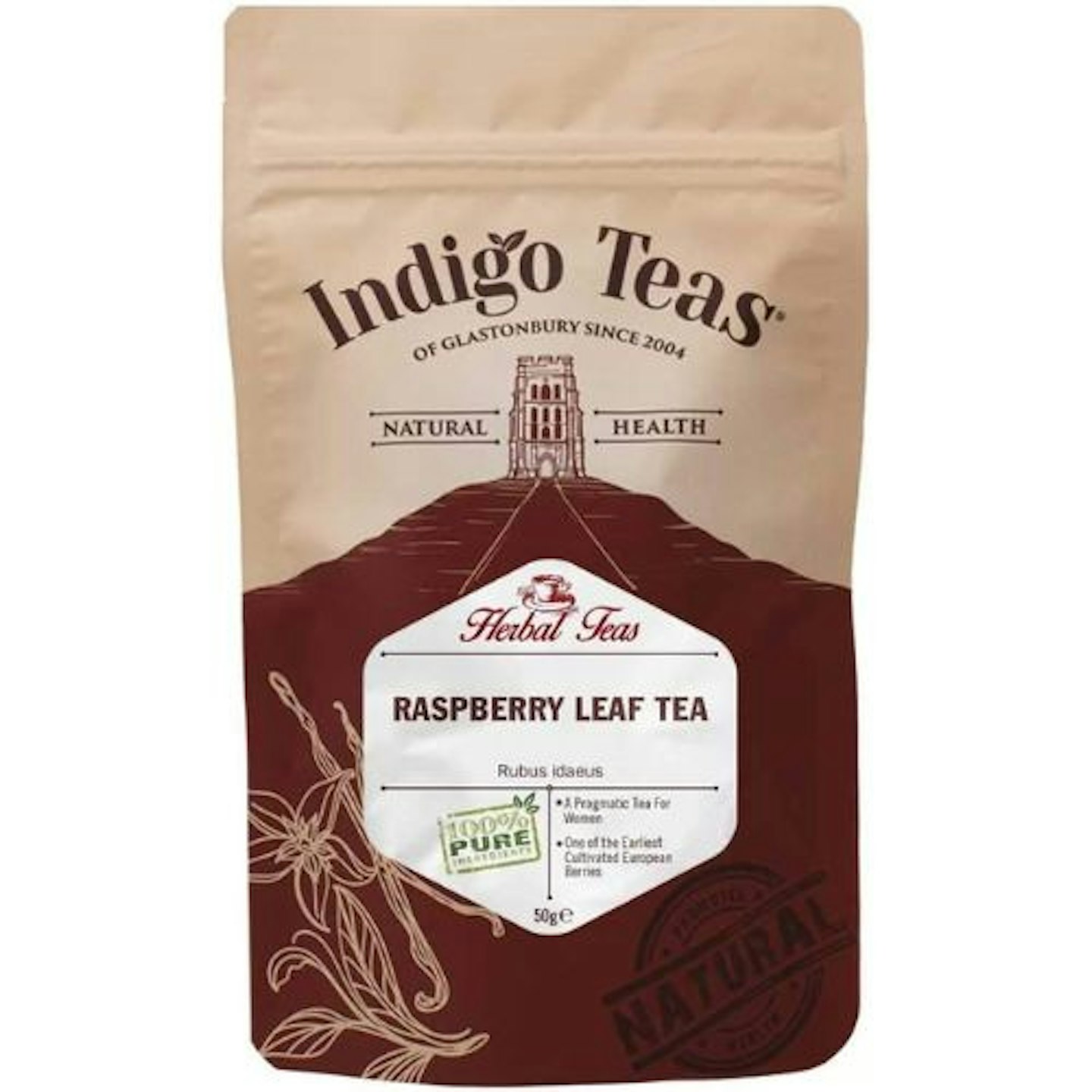 Amazon
AmazonDescription
This is 100 per cent pure botanical ingredients with absolutely nothing else added. The resealable airtight foil pouch will keep your tea fresher for longer.
Pros
- Pure ingredients
- Strong flavour
Cons
- Loose leaf so strainer needed
Best raspberry leaf tea for flavour
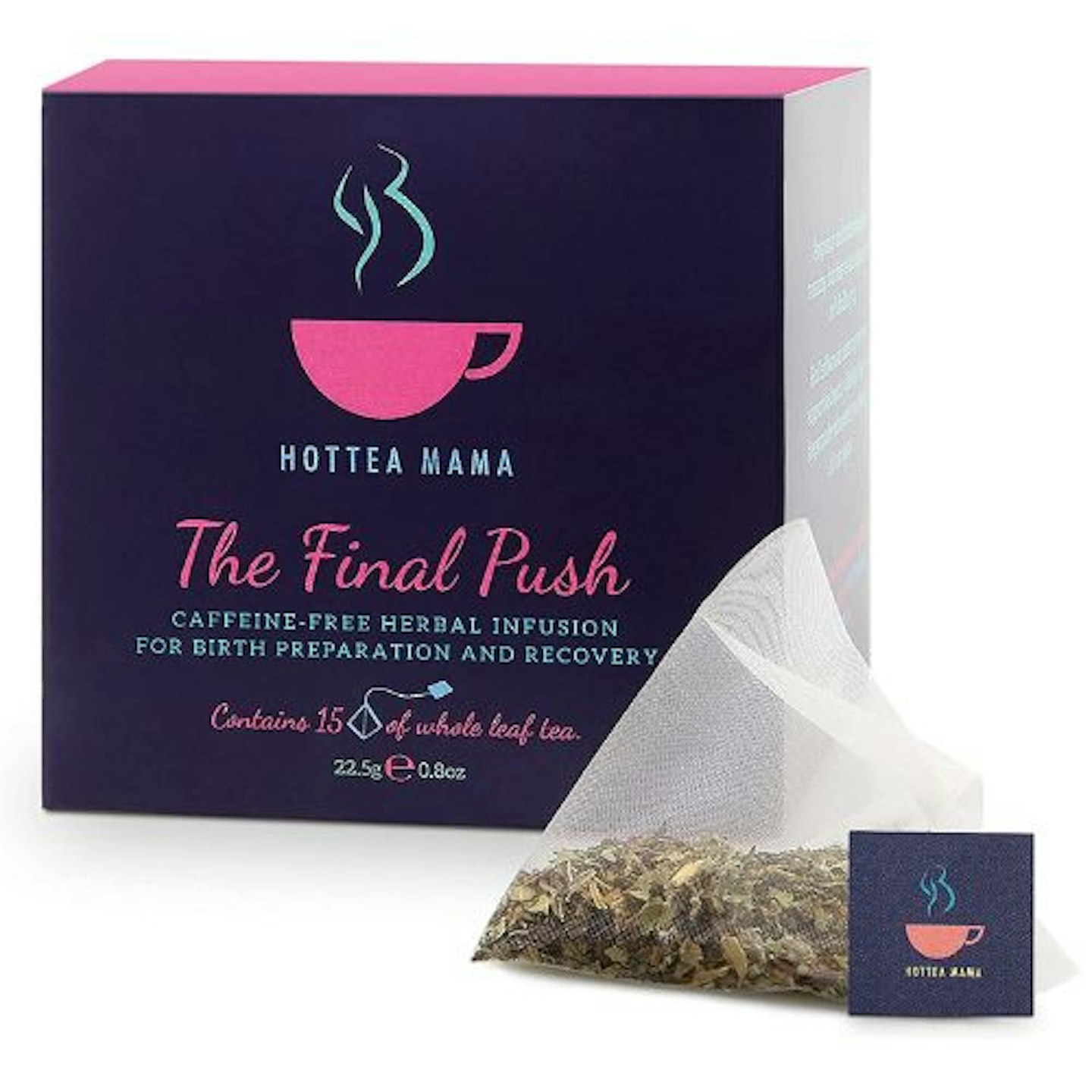 Amazon
AmazonDescription
If you're not so keen on the flavour of raspberry leaf tea, you can get this version that has peppermint as well.Bernice applauded HotTea for her speedy labour: "I was 37 weeks pregnant when I started drinking this tea, and induced at 38 weeks. The nurse and Doc was very surprised that in few hours I would go into labour so fast. I recommend this tea for women who want to give birth very fast"
Pros
- Biodegradable
- Helps combat late pregnancy heartburn
Cons
- Some mums found the teabag was a bit weak
Best loose leaf raspberry leaf tea
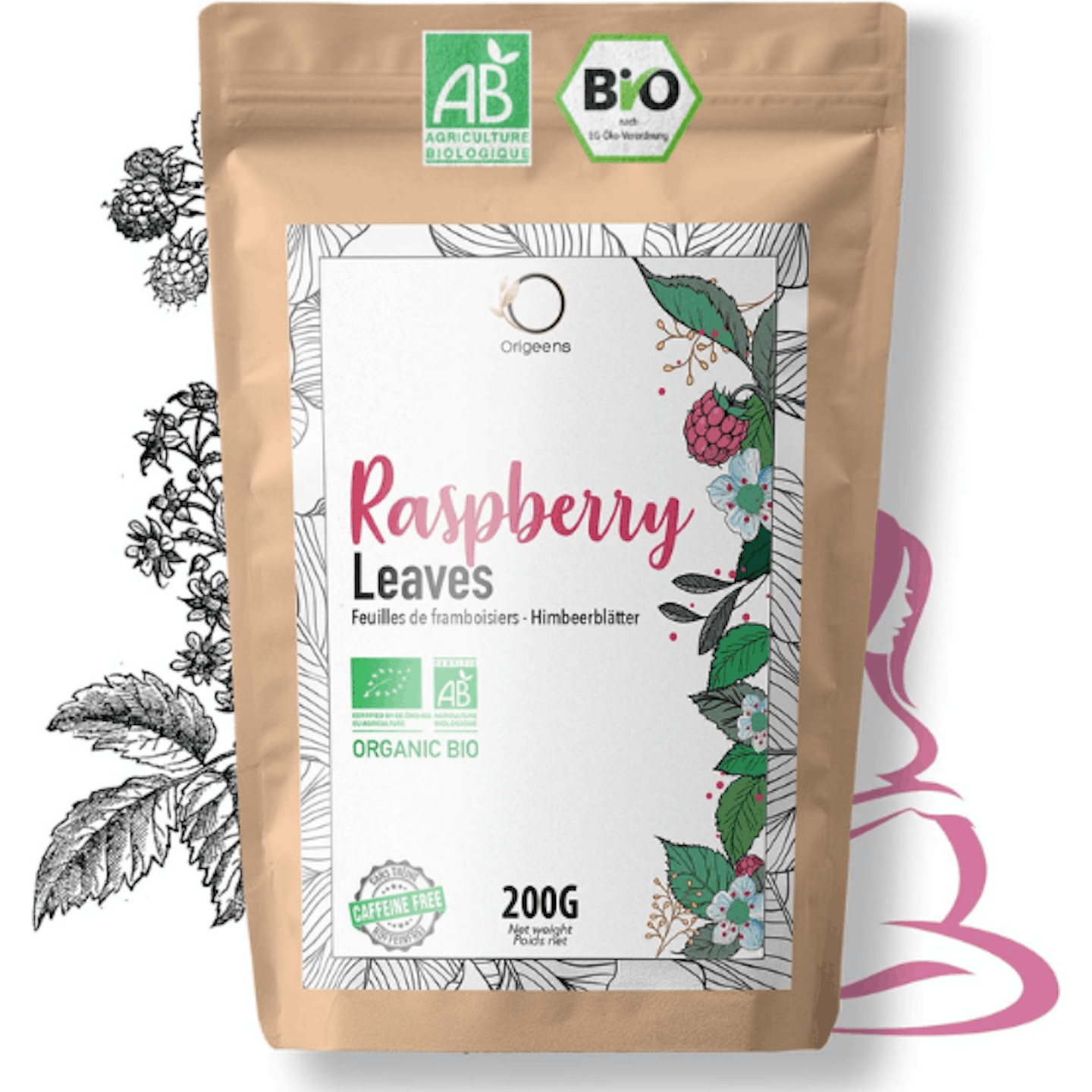 Amazon
AmazonDescription
If you prefer to brew your tea from loose leaves in a teapot, this is a great option. It has a mild bitter taste similar to black tea and is also organic.
One reviewer, Zoe, said: "I was expecting it to taste strong and sweet like the t-bags I’d tried during my previous pregnancy. But this is more of a green tea sort of taste, I added honey and it’s really enjoyable. I’d suggest a tea strainer if you don’t like the floaters but I personally don’t mind them. Great value for money."
Pros
- 100% organic
- Can help digestion after birth
Cons
- More of a bitter, green tea taste so may need to add some honey
Best organic raspberry leaf tea
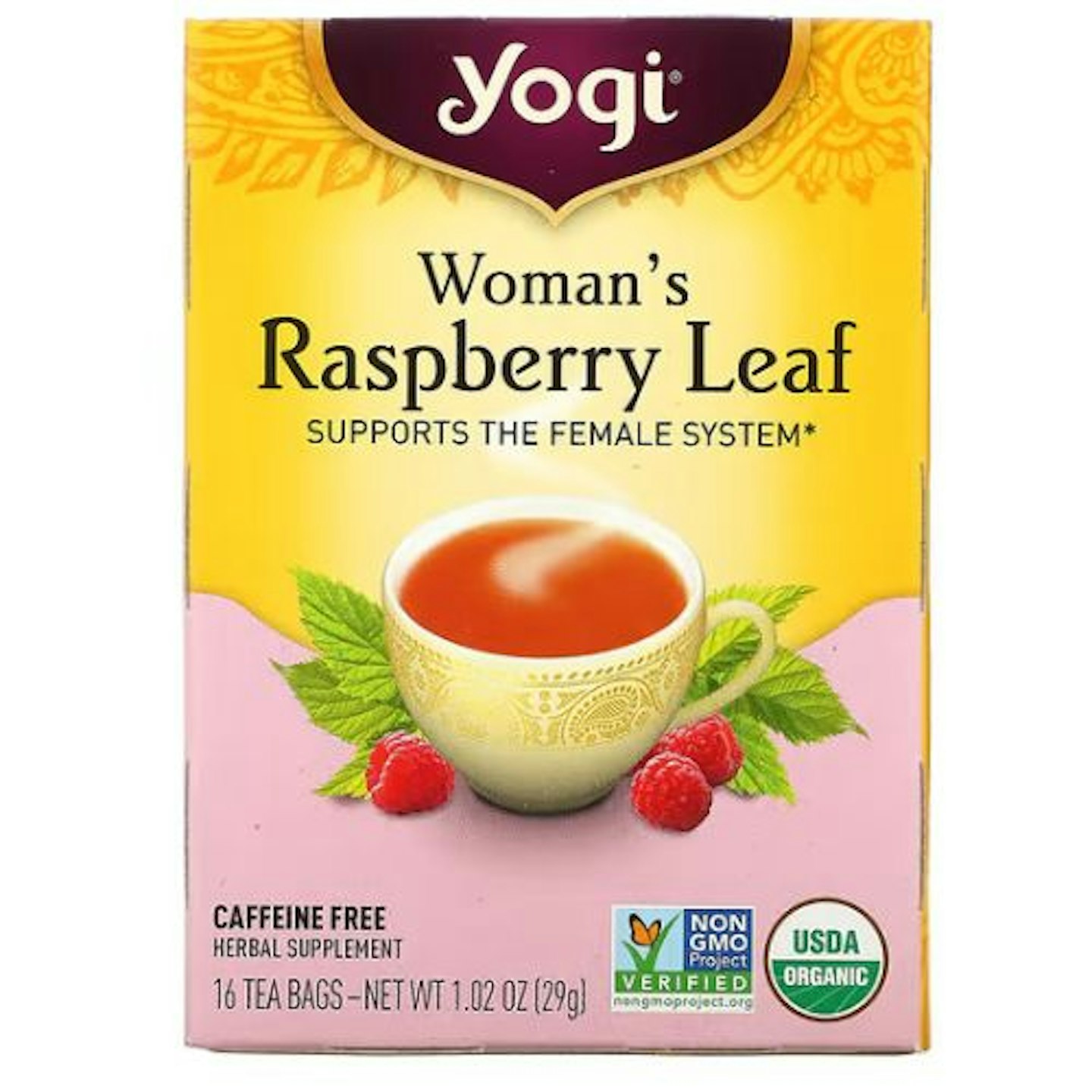 iHerb
iHerbuk.iherb.com
Description
This well-known tea brand brings you a kosher tea with oxygen-bleached tea bags.
Pros
- Kosher
- Ideal for taking into hospital
Cons
- Some mums found it quite weak so needed to use two tea bags per cup
Best concentrated raspberry leaf tablets
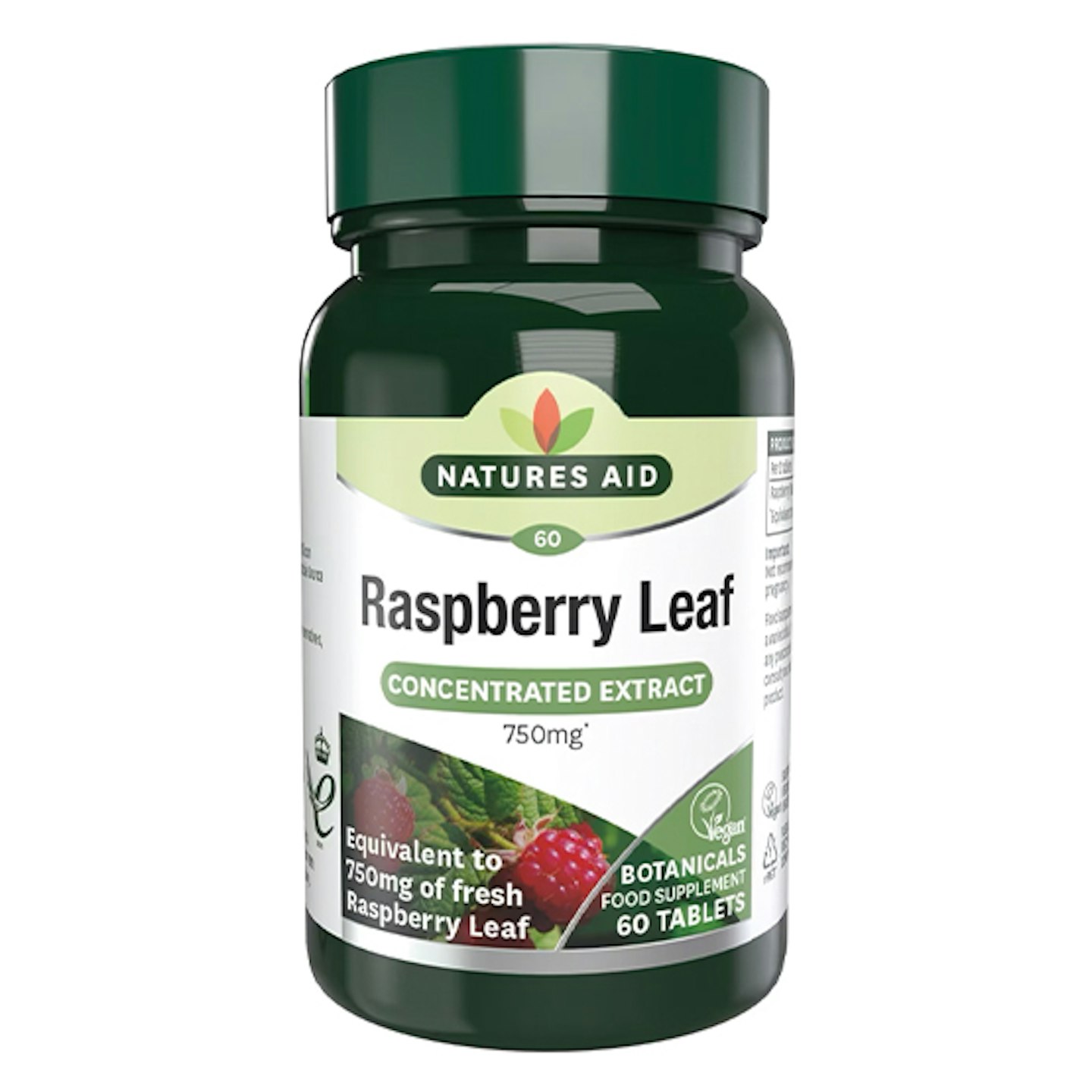 Holland & Barrett
Holland & BarrettDescription
These tablets are great if you don't like the taste of raspberry leaf tea but still want the benefits. Plus they are concentrated using not just the berries of the raspberry bush but the leaves too. Natures Aid Raspberry Leaf extract provides the equivalent to 750mg of dried Raspberry Leaf.
One reviewer said: "I have taken this with all 3 pregnancies & definitely helps in labour 2x 2hr labour and 1x less than an hour! It works!'
Pros
- Good for those who don't like tea
- Suitable for vegetarians and vegans
Cons
- Some mums found they had a very strong taste and smell
Best pregnancy raspberry leaf tea
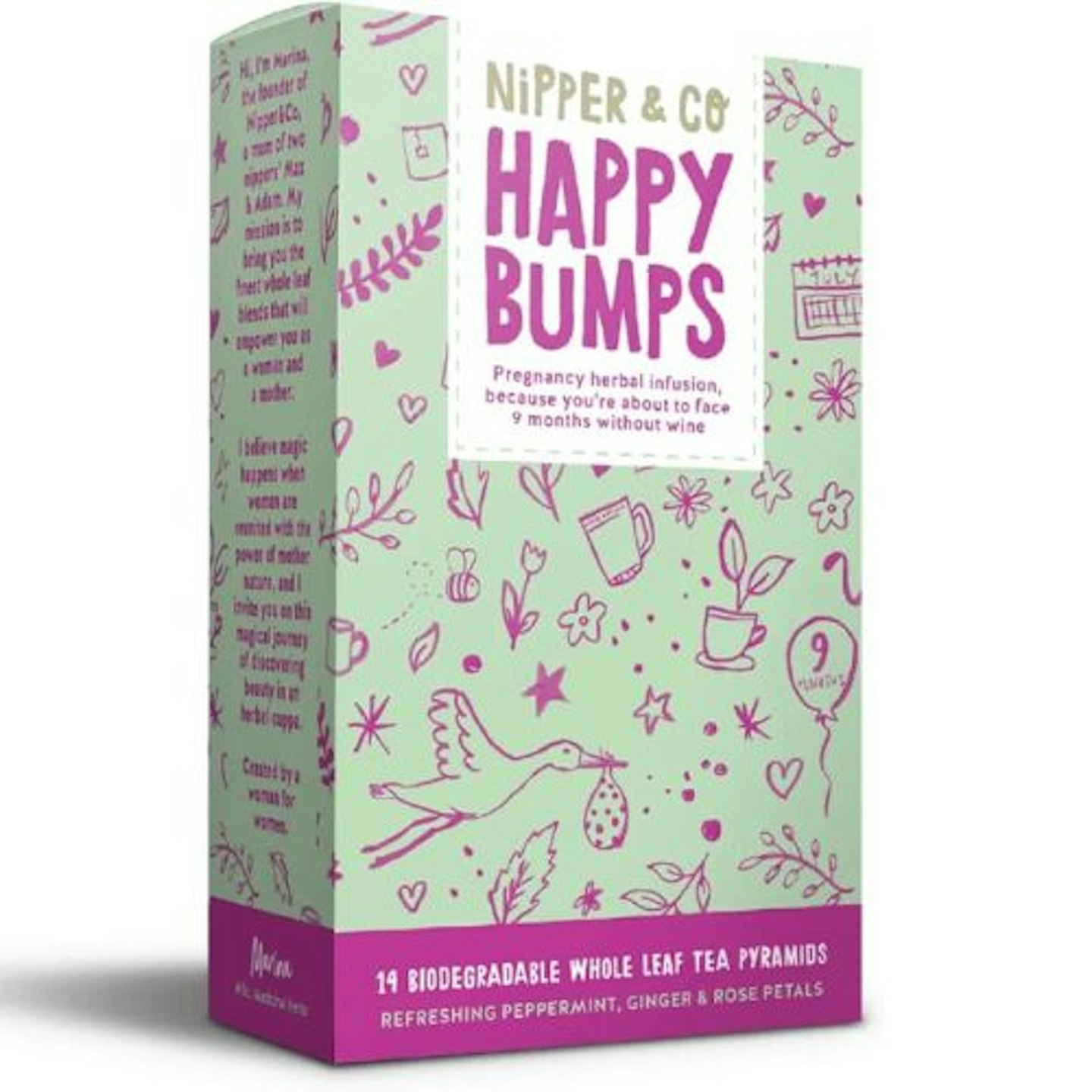 Amazon
AmazonDescription
This refreshing Nipper Co Organic Pregnancy Tea is 100 per cent natural, free of artificial flavours or additives, flavour enhancers or colourings. It contains peppermint, spearmint, ginger, rose petals and of course raspberry tea - but only 13 per cent. **One reviewer commented: "**I keep going back to this blend even though I am not pregnant anymore. When I was pregnant it was my favourite go to herbal tea, and one of the rare things that did not make me nauseous. Now I just enjoy it as a naturally caffeine free option whilst breastfeeding and I heard raspberry leaf is great to have postpartum as well."
Pros
- Made for pregnancy
- Free from artificial flavours
Cons
- Blend of different flavours so not pure raspberry leaf
Best raspberry leaf tablets for convenience
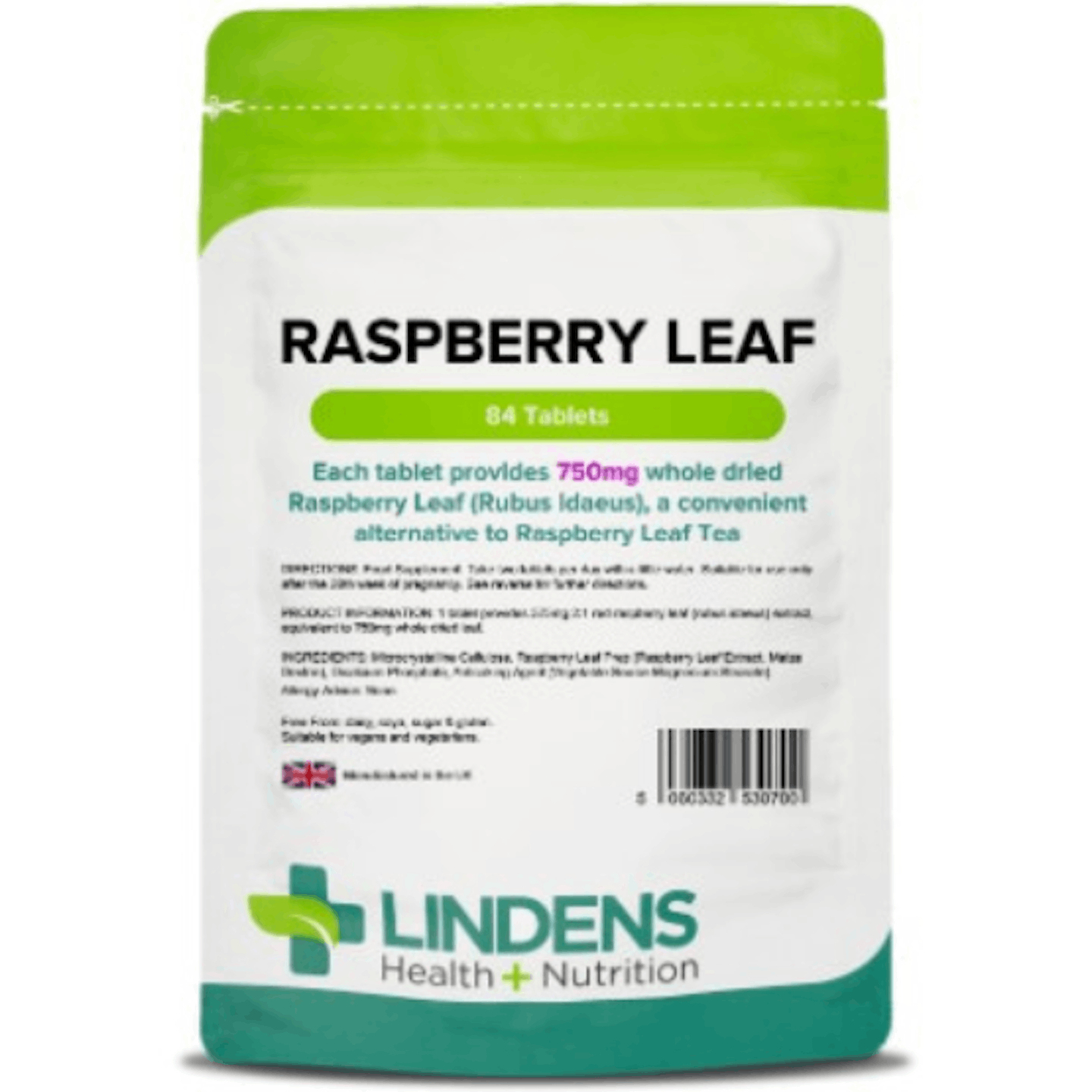 Amazon
AmazonDescription
Suitable for use after the third trimester of pregnancy & beyond birth, these tablets are really convenient not only if you don't like the taste of the tea but also because they are letterbox friendly so you don't have to wait around for the postman!
One reviewer, Laura, said: "Like everyone else, I can’t say for sure if these worked, but I can give you my stats. I started taking these at around 38 weeks, 2 a day, and gradually increased my dosage until at the end I was taking 10 a day. (I went to almost 42 weeks). So they didn’t induce labour. (I was also doing acupuncture, particular exercises, intercourse etc, but baby came only when he was ready!)
Now, he was my first baby, born 9lbs, and he came SUPER fast. As in 5 hours from first contraction to holding my baby. Active labour was under an hour.
I can’t tell you if these supplements helped me have such a quick labour, but I add my story to the anecdotal evidence and let you decide for yourself if they’re worth trying. For me, I would definitely use them again. They were fine to take (although smaller pills are easier) and I had no ill effects so I think they’re worth the chance that they do help."
Pros
- Good for those who don't like tea
- Letterbox friendly
Cons
- Packaging isn't very protective
About the experts
Rachel Fitz-Desorgher
Rachel Fitz-Desorgher is a baby and parenting expert and mother’s mentor. She has four grown-up sons and two grandchildren.
Rachel worked as a specialist midwife, infant feeding consultant and parenting consultant for over 30 years before deciding to leave midwifery in order to focus her expertise and experience on mentoring women transitioning from the busy world of work to motherhood.
Laura Southern
Laura Southern is a fully certified nutritional therapist from London Gynaecology, who has worked in nutritional therapy for seven years, and she qualified at the prestigious Institute for Optimum Nutrition which is recognised as one of the leading centres for nutritional training and education.
Laura became passionate about supporting pregnant women during her own pregnancies, noticing first-hand the difference the right nutrition and supplementation plan can make. She has since treated numerous pregnant ladies with a range of pregnancy-related conditions including; endometriosis, polycystic ovaries, weight management, anaemia and gestational diabetes.
Sandra Greenbank
Sandra Greenbank is a registered nutritional therapist specialising in fertility, pregnancy and women's health.
With 12 years experience as a nutritional therapist working with clients across the UK, Europe and the US, she has helped countless women get to the root cause of their fertility issues and achieve the healthy pregnancy and baby they didn’t think was possible.
She studied for four years at the Institute of Optimum Nutrition and qualified in 2009. She's currently undergoing training at the Institute of Functional Medicine as part of her commitment to attaining the highest standards of knowledge and competence in the practice of evidence based Nutritional Therapy and Functional Medicine.
Maria Martin is Digital Group Editor for Yours.co.uk and Motherandbaby.com. She is a mum-of-two with a passion for helping women from all walks of life – from supporting breastfeeding mothers with expert advice to encouraging conversations about mental health. In her professional role, she has over 10 years' experience in the digital world, including editing articles, focussing on SEO, social media engagement, picture researching and video editing.
